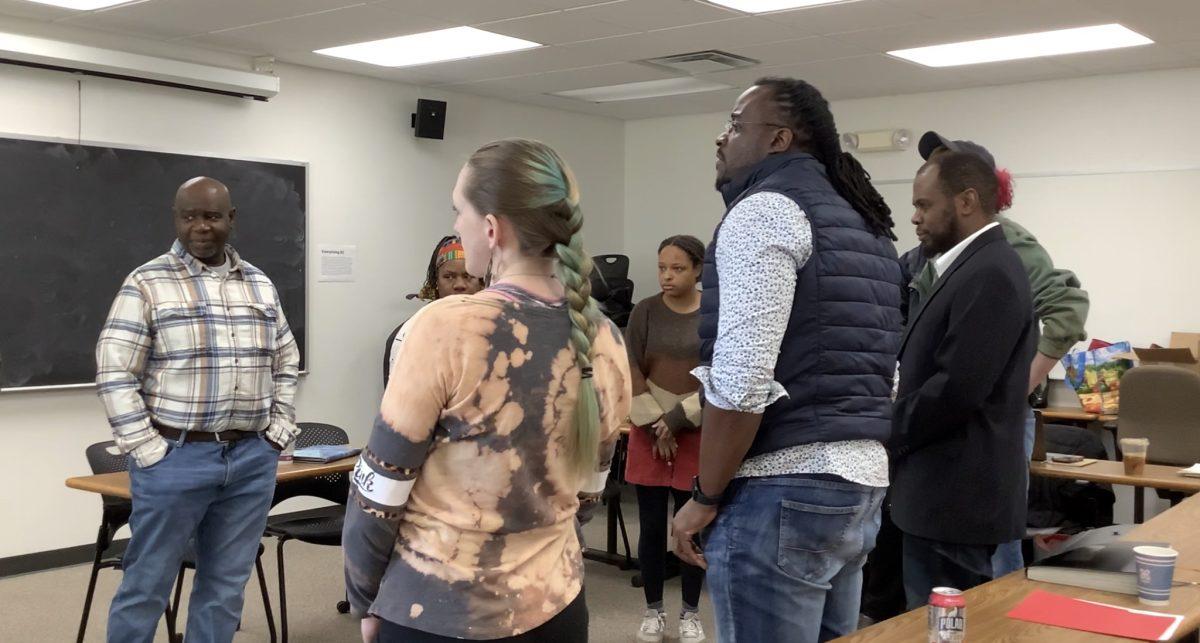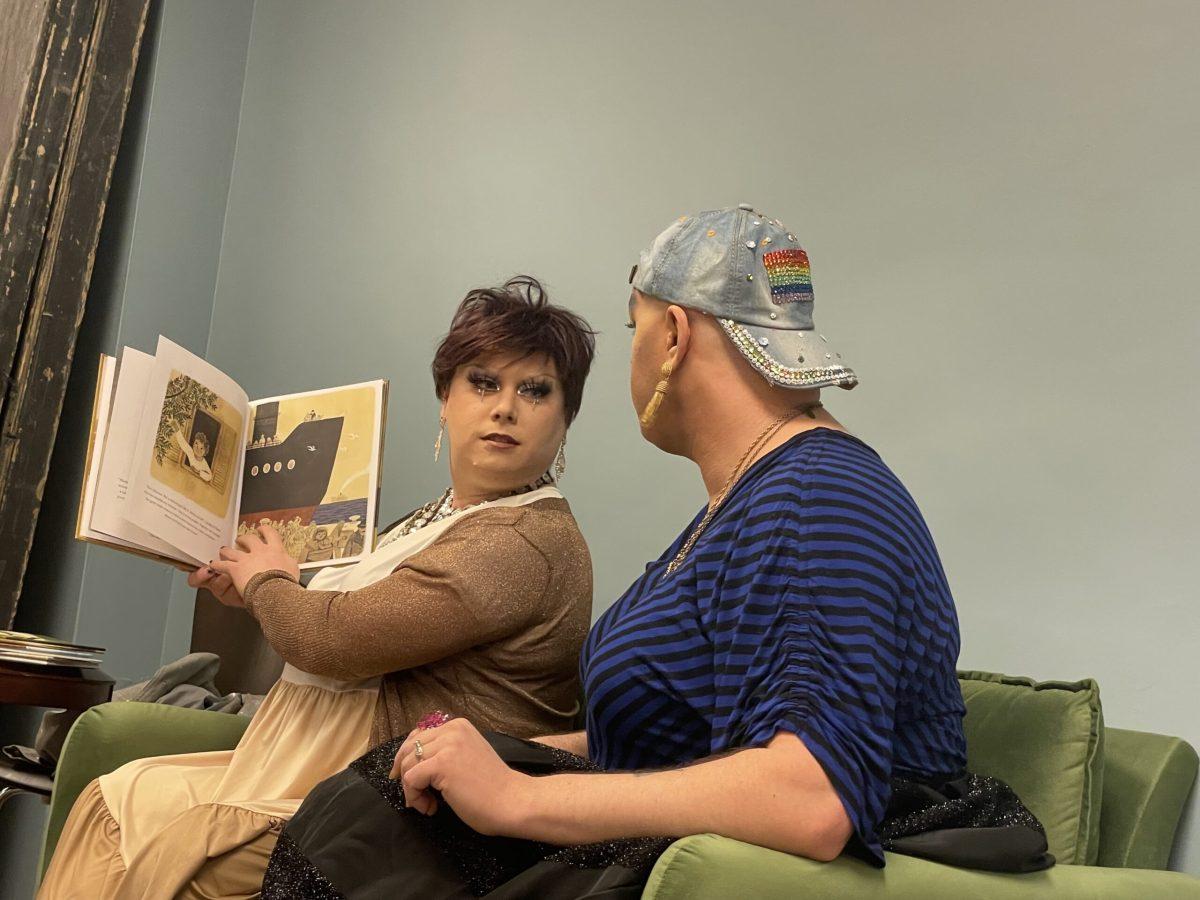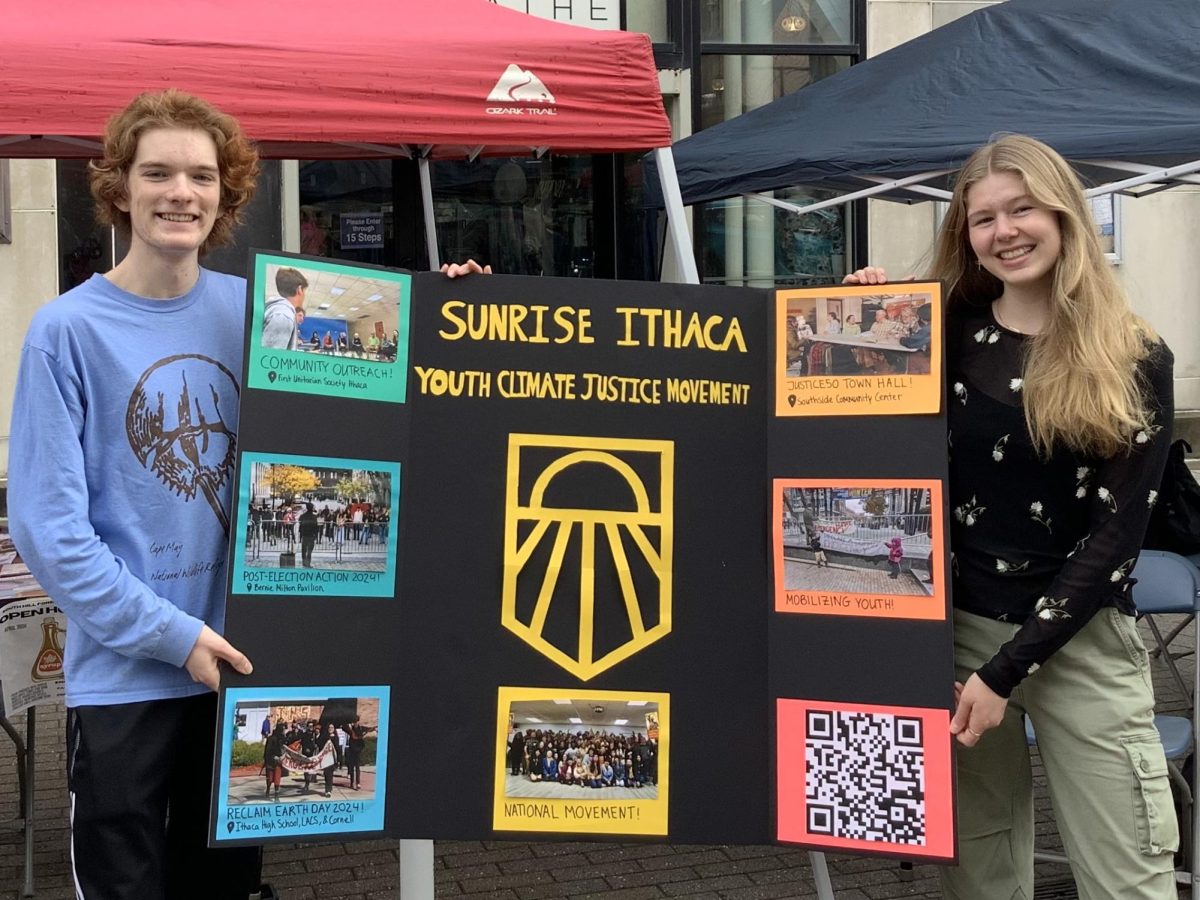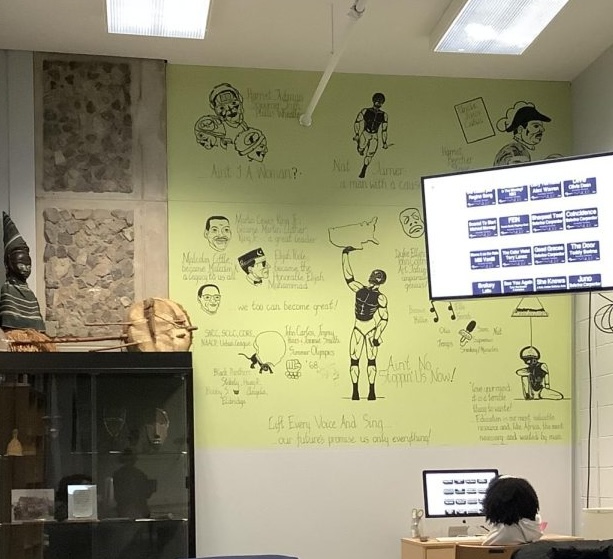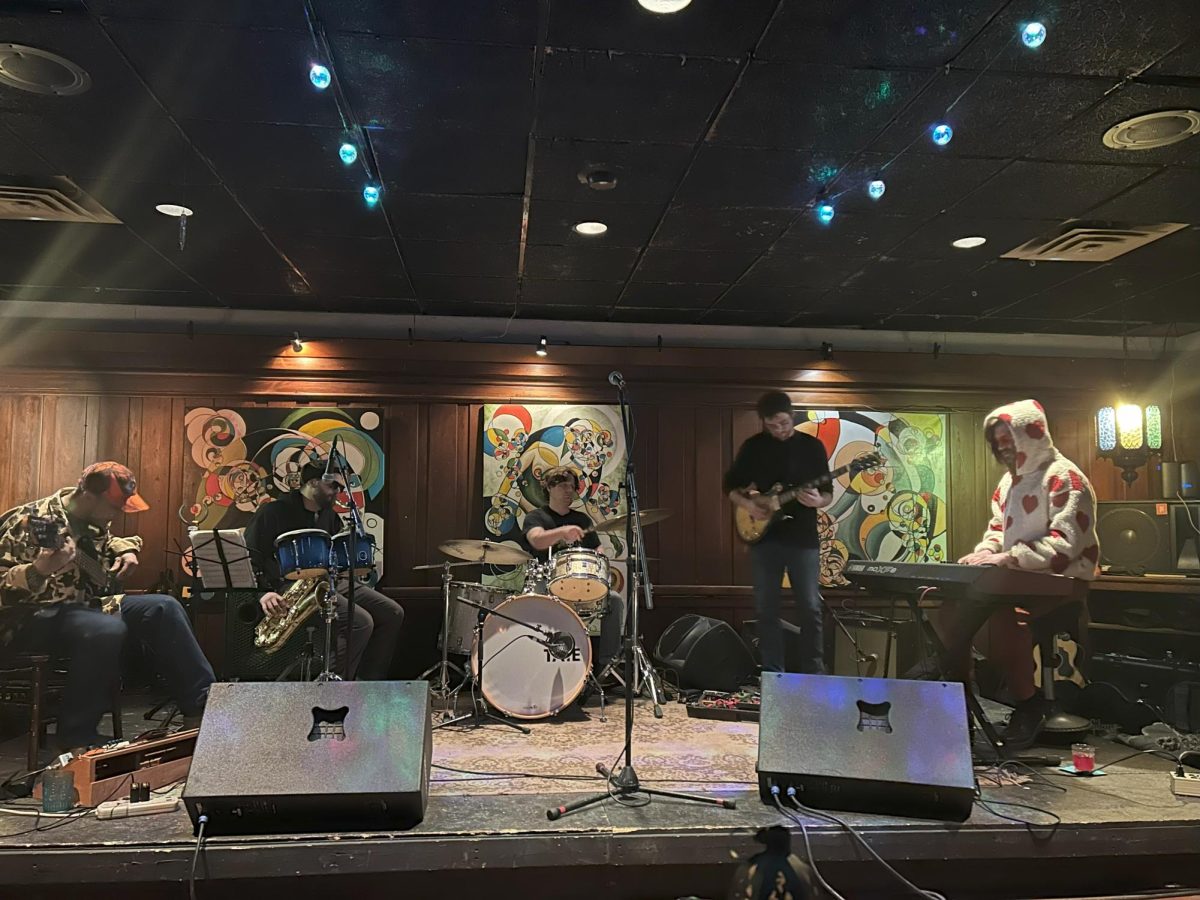 Seated in The Kitchen Theatre about to watch Sanctuary City by Martyna Majok. A quick glimpse at the set. (Photo by Alecia Solorzano/Ithaca Week)
Seated in The Kitchen Theatre about to watch Sanctuary City by Martyna Majok. A quick glimpse at the set. (Photo by Alecia Solorzano/Ithaca Week)
When people think of playwrights, it’s easy to think of people like Shakespeare, Oscar Wilde, and Neil Simon. But people are often unaware of the many undiscovered playwrights—especially those with backgrounds that shape the stories they create.
Immigrant playwrights
Many people tend to draw from personal experience when writing a play, but the perspective of an immigrant playwright has not been brought to light in the theatre that most know. “Sanctuary City”, a play by Martyna Majok, is a piece that addresses a broad range of issues associated with immigration in this country and just recently ran at The Kitchen Theatre in downtown Ithaca from Feb. 21 to March 3.
Immigration is a hot-button political topic in the United States of America and has caused turmoil for many individuals. This affects people in all communities, including here in Ithaca. Saviana Stanescu currently works as an associate professor of playwriting and contemporary theatre at Ithaca College and hosted a pre-show talk at the Feb. 28 production of “Sanctuary City” called “NY through an Immigrant.”
“Of course, I hope that all of us immigrant playwrights get to have our work done more often and our voices heard because these stories need to be told,” Saviana said, “These characters, immigrants, foreigners, ‘aliens’, as they are called here, need to be there center stage. On stages everywhere. I mean, regional theatre, Off-Broadway, on Broadway, and of course, globally.”
 Saviana Stanescu giving a pre-show Kitchen Table Talk and talking more about immigrant playwrights, including herself and Martyna Majok. (Photo by Alecia Solorzano/Ithaca Week)
Saviana Stanescu giving a pre-show Kitchen Table Talk and talking more about immigrant playwrights, including herself and Martyna Majok. (Photo by Alecia Solorzano/Ithaca Week)
The mission of The Kitchen Theatre
Bringing Sanctuary City to the community of Ithaca aligns closely with the mission and vision of The Kitchen Theatre. Since 1991, the group’s work has heavily focused on community engagement and providing a space to spark important conversations.
Rachel Lampert, the Producing Artistic Director, has worked at The Kitchen Theatre for over 20 years and continues to encourage each audience to think about the topics conveyed in each show. She even introduces each show beforehand in a curtain speech and discusses a little bit about what each audience is going to see that night.
“Our branding is ‘Important conversations happen in The Kitchen’ and also ‘Bold, Intimate, Engaging.’ Those are the things we say about it,” Lampert said, “Our job, I think, is to bring to the community plays that really increase the conversations about important issues and about artistic issues.”
When discussing important topics like immigration, The Kitchen Theatre members think that it is important to start discussions within the community and then spread them beyond the small town of Ithaca. This even extends to the cast members who are telling those stories.
Actors telling stories
Shawn Denegre-Vaught and Cheryse Dyllan played the two lead characters, B and G, in The Kitchen’s production of Sanctuary City. Both actors are not from the Ithaca area but place a focus on telling these tough stories to bring visibility and understanding to small communities and beyond.
“This is difficult. There isn’t a happy ending to this show,” Dyllan said, “We can think about how this could’ve gone better but there are tons of people out there who are not getting happy endings. They’re being separated from their families and children are living in this reality.”
Cheryse describes this as one of the broader concepts but continues on to share their insight, what they take away from the piece, and what they want people to understand.
“So, for me, I just want people to be seen and feel seen and know that we are here, and we are still fighting and even if it’s not easy that doesn’t mean we’re going to go away,” Dyllan added. “We’re not going to disappear. I think that’s probably the most important part of this story to me is to make sure that we’re visible.”
https://youtu.be/KekzVkrbgDI?si=e7orfLb-2AvHo8gh





